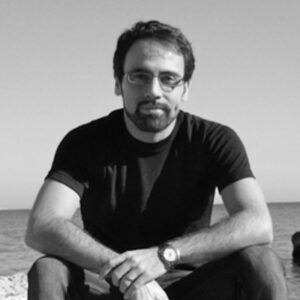
Vincenzo Pavone
With a background in political science and a master in politics and government, Vincenzo Pavone is a Doctor in Social and Political Science from the European University Institute (EUI) with a thesis on the impact of scientific humanism on the creation, developments and programmes of UNESCO. First lecturer in Politics and International Relations at the Mediterranean Centre for Arts and Sciences (MCAS), Siracusa (Italy), Vincenzo joined the Institute of Public Policies of the CSIC as a post-doctoral researcher in 2006.
At the IPP he has developed a research line in critical science and technology studies, with a special focus on the social and political implications of emerging technologies, such as surveillance-oriented security technologies, transgenics and cisgenics, as well as assisted reproductive technologies. Always working on the complex relationship between science, technology and politics, with a special focus on neoliberalism, Vincenzo has recently opened a new research line on the global bioeconomy.
In these past ten years at the IPP he has been principal investigator of two national projects on assisted reproductive technologies and regenerative medicine (BBE-GEN 1997-2010 and BIOARREME 2012-2015), two EU funded projects on public and civil society engagement in science, PSx2 (FP6, 2007-2008) on transgenics and SURPRISE (FP7, 2012-2015) on surveillance-oriented security technologies, a COST Action (IS1001, 2011-2014) on bio-objects.
He is currently member of the “Science and Democracy Network” coordinated by the University of Harvard, of the EASST (the European Association for the study of Science and Technology) and founder, and active member, of the Spanish STS network (Red EsCTS). In the past few years, Vincenzo Pavone has been visiting various international universities, such the UC Berkeley, York University, King’s College London, the Universidad de Chile and the Universidad Nacional de Quilmes in Argentina.


